Selecting the perfect sunscreen is a vital step in safeguarding your skin against the sun’s harmful UV rays and minimizing the risk of skin cancer, sunspots, fine lines, and premature aging. With a multitude of sunscreen products available, it’s essential to understand the differences between chemical and mineral sunscreens, SPF numbers, water resistance, and various skin types’ needs. In this comprehensive guide, we will help you navigate the world of sunscreens, decode sunscreen labels, and choose the best protection for your skin. Whether you’re seeking UVB protection, UVB protection, or safer sunscreen options, we’ve got you covered with expert insights to ensure you make a well-informed decision for your skin’s health and safety.
Understanding Sunscreen Basics

Before diving into the specifics, let’s start by understanding the basics of sunscreen and why it is important to incorporate it into your daily skincare routine. Sunscreen acts as a protective shield against harmful ultraviolet (UV) rays from the sun. There are two types of UV rays that can damage your skin: UVA and UVB.
- UVA rays are responsible for premature aging, wrinkles, and can penetrate deep into the skin layers.
- UVB rays are the primary cause of sunburns and can also contribute to skin cancer.
To ensure comprehensive sun protection, it is essential to choose a sunscreen that offers broad-spectrum coverage, protecting against both UVA and UVB rays.
Different Types of Sunscreens
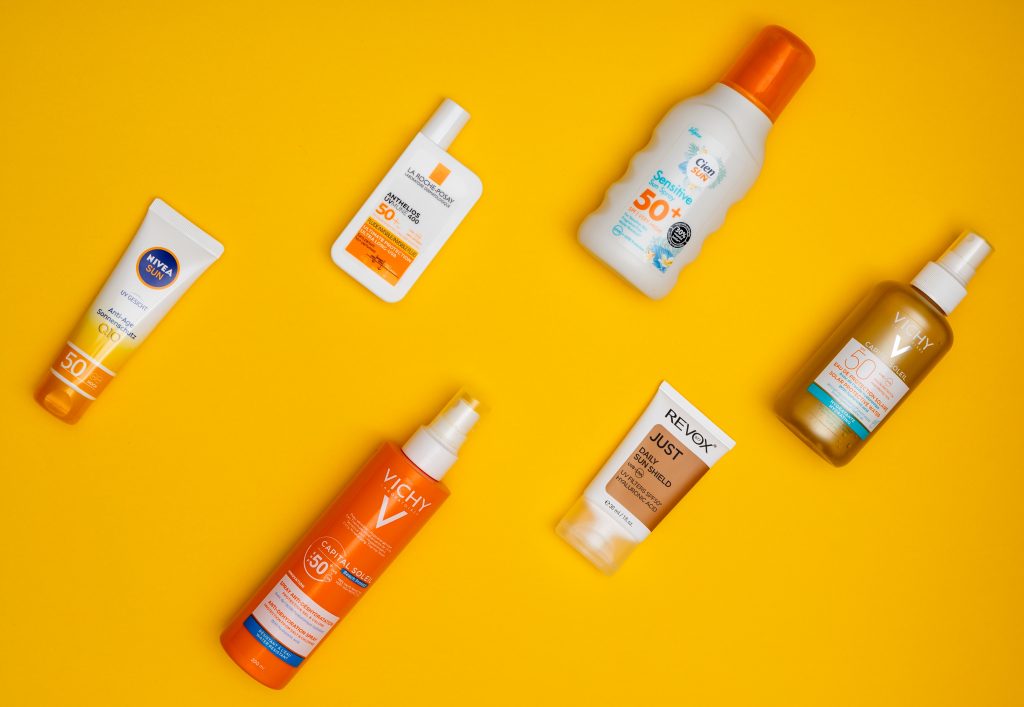
Chemical Sunscreens
Chemical sunscreens work by absorbing UV rays and converting them into heat, which is then released from the skin. These sunscreens contain chemical compounds such as avobenzone, octinoxate, and oxybenzone. They are lightweight, easily absorbed, and often have a transparent finish, making them suitable for everyday use.
However, it’s important to note that some chemical sunscreens can cause skin irritation, especially for those with sensitive skin. If you have sensitive skin, it’s best to opt for physical or mineral sunscreens instead.
Mineral Sunscreens
The best mineral sunscreens, also known as physical sunscreens, work by sitting on top of the skin and reflecting UV rays away from the skin. The best tinted sunscreens have two main active ingredients are zinc oxide and titanium dioxide. These ingredients are known to be gentle on the skin and are less likely to cause irritation.
One of the advantages of mineral sunscreens is that they provide immediate protection upon application. Unlike chemical sunscreens, there is no need to wait for the sunscreen to be absorbed by the skin before going out in the sun. Additionally, mineral sunscreens are generally considered reef-safe, as they do not contain harmful chemicals that can contribute to coral reef damage.
Choosing the Right Sunscreen for Your Skin Type

Finding the best sunscreen for face and your skin type is crucial to ensure optimal protection and prevent any adverse reactions. Here are some tips to help you choose the right sunscreen for your specific skin needs:
Sensitive Skin
If you have sensitive skin, it’s important to look for sunscreens that are labeled as “hypoallergenic” or “gentle formula.” These sunscreens are specifically formulated to minimize the risk of irritation and allergic reactions. Opt for mineral sunscreens with zinc oxide or titanium dioxide, as they are less likely to cause skin sensitivity.
Dry Skin
For those with dry skin, it’s best to choose sunscreens that have moisturizing properties. Look for sunscreens that contain ingredients like hyaluronic acid or glycerin, which help to hydrate and nourish the skin while providing sun protection. Additionally, consider using a sunscreen with a cream or lotion texture, as it will provide extra moisture for your dry skin.
Oily or Acne-Prone Skin
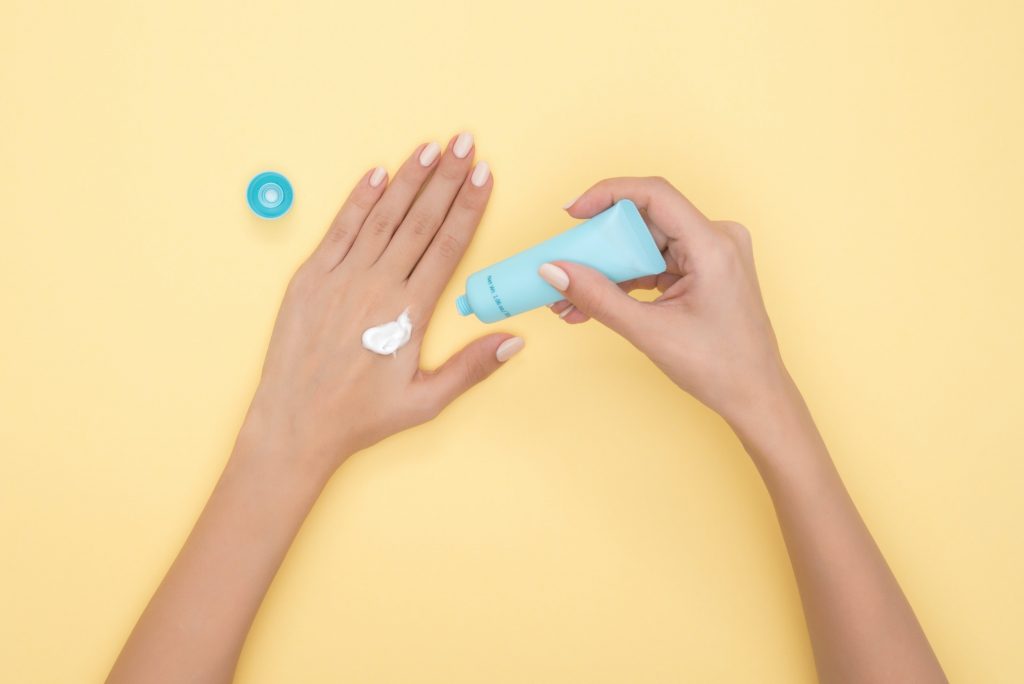
If you have oily or acne-prone skin, opt for sunscreens that are oil-free or labeled as “non-comedogenic.” These sunscreens are less likely to clog pores and contribute to breakouts. Look for lightweight formulas such as gels or fluids that won’t feel heavy or greasy on your skin.
Combination Skin
For combination skin, it’s best to choose a sunscreen with a lightweight formula that won’t make your skin feel greasy or dry. Look for sunscreens that are labeled as “matte finish” or “oil-balancing,” as they can help control shine in the T-zone while providing adequate sun protection for the rest of your face.
Aging Skin
As we age, our skin becomes more susceptible to sun damage and wrinkles. To address these concerns, look for sunscreens that offer additional anti-aging benefits. Some sunscreens contain antioxidants like vitamin C or green tea extract, which can help protect the skin against free radicals and promote a youthful complexion.
Factors to Consider
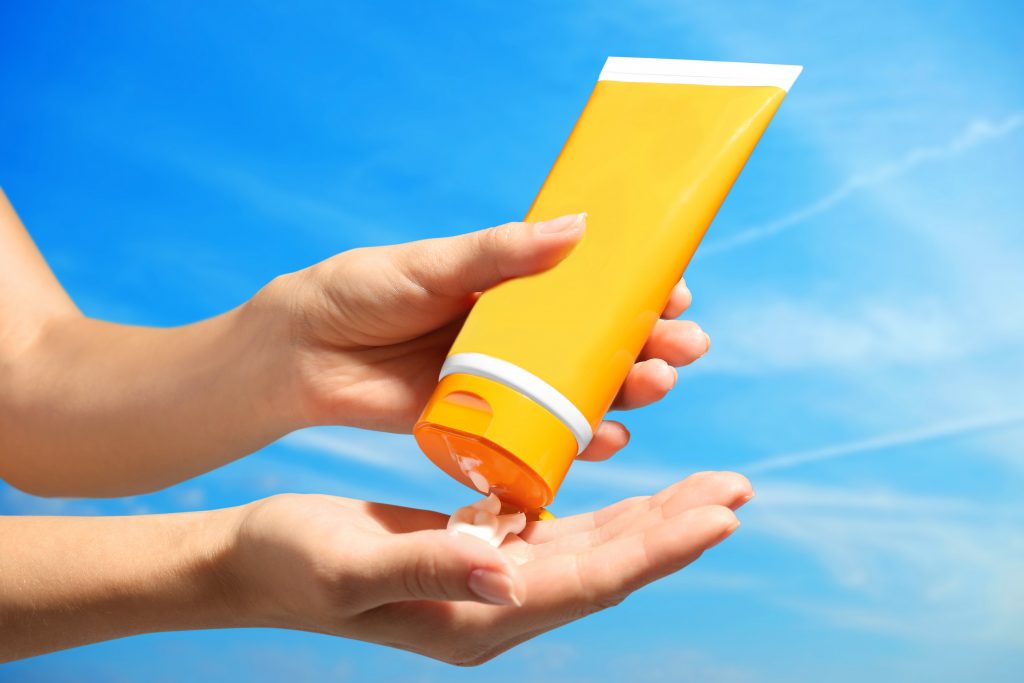
When choosing the best sunscreen, it’s important to consider factors beyond your skin type. Here are some additional factors to keep in mind:
Sun Protection Factor (SPF)
The Sun Protection Factor (SPF) indicates the level of protection a sunscreen provides against UVB rays. Higher SPF values offer more protection, but it’s important to note that no sunscreen can provide 100% protection. The American Academy of Dermatology recommends using a sunscreen with at least SPF 30.
White Cast
Some sunscreens, especially mineral sunscreens, can leave a white cast on the skin, especially on darker skin tones. If you’re concerned about this, look for sunscreens with micronized or nano-sized particles, as they are less likely to leave a white residue.
Water-Resistant
If you plan on swimming or participating in water activities, it’s important to choose a sunscreen that is water-resistant. Water-resistant sunscreens can provide protection even when exposed to water or sweat, but it’s important to reapply them as instructed on the packaging.
Expiration Date
Like any skincare product, sunscreens have an expiration date. Using expired sunscreen may not provide adequate protection, so it’s important to check the expiration date before using. Most sunscreens have a shelf life of about three years.
How to Apply Sunscreen

Applying sunscreen correctly is just as important as choosing the right one. Follow these tips to ensure proper application:
- Apply sunscreen generously to all exposed areas of the body, including the face, neck, arms, and legs. Don’t forget areas like the ears, back of the hands, and tops of the feet.
- Apply sunscreen at least 15 minutes before sun exposure to allow it to absorb into the skin.
- Reapply sunscreen every two hours, or more frequently if you are sweating or swimming.
- Don’t forget to protect your lips with a lip balm that contains SPF.
- Remember that sunscreen is not a substitute for other sun protection measures, such as wearing protective clothing, seeking shade, and avoiding excessive sun exposure during peak hours.
Our Top Picks for Best Sunscreens
After extensive research and testing, we have compiled a list of our top picks for the best sunscreens on the market. These sunscreens have been carefully selected based on their effectiveness, ingredients, and user reviews. Here are our top recommendations:
CeraVe Mineral Sunscreen
– SPF 50, suitable for all skin types, water-resistant, non-greasy formula.
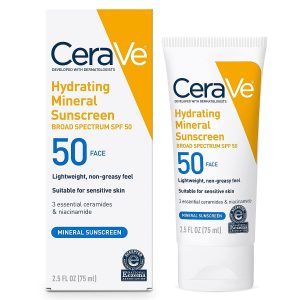
EltaMD UV Facial Sunscreen Moisturizer
– SPF 30, lightweight formula, suitable for sensitive skin, broad-spectrum protection.
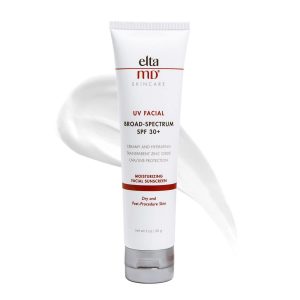
Mineral Mattescreen
– SPF 40, mineral sunscreen, suitable for oily and acne-prone skin, matte finish.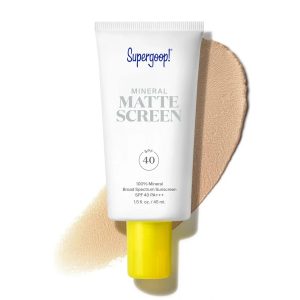
ISDIN Eryfotona Actinica
– SPF 50+, anti-aging formula, contains antioxidants, suitable for aging skin.
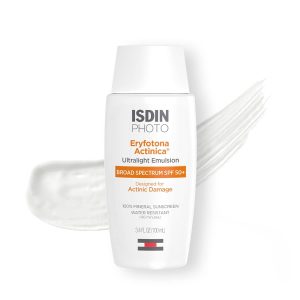
Coral Isles Sunscreen
– SPF 50, reef-safe formula, suitable for outdoor activities, non-whitening.
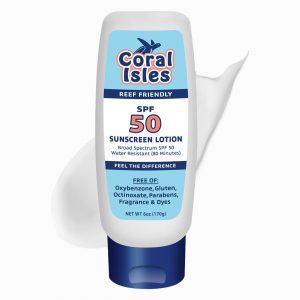
Conclusion

In conclusion, the significance of wearing sunscreen cannot be overstated when it comes to protecting your skin from the sun’s harmful rays. Whether you’re concerned about dark spots, sunspots, or simply want to maintain healthy and youthful-looking skin, sunscreen is your first line of defense. With various options available, including safer mineral sunscreens and broad-spectrum formulations, it’s easier than ever to find a sunscreen that suits your skin type and preferences. The Environmental Working Group’s (EWG) guide and top-rated sunscreens can serve as valuable resources in making informed choices. As a rule of thumb, daily use of sunscreen, even on cloudy days, is a good practice to ensure consistent sun protection. So, make it a habit to incorporate sunscreen into your skincare routine and reap the benefits of effective sun protection. By doing so, you not only protect your skin but also contribute to the preservation of coral reefs and the environment, making it a good idea in more ways than one. Remember, in the United States, the U.S. Food and Drug Administration (FDA) is continuously studying sunscreen formulas to enhance their safety and efficacy. So, embrace the ease of application, be it with spray sunscreens, stick sunscreens, or sunscreen lotion, and enjoy the warmer weather with confidence, knowing that you’re taking a proactive step towards healthier and more radiant skin.